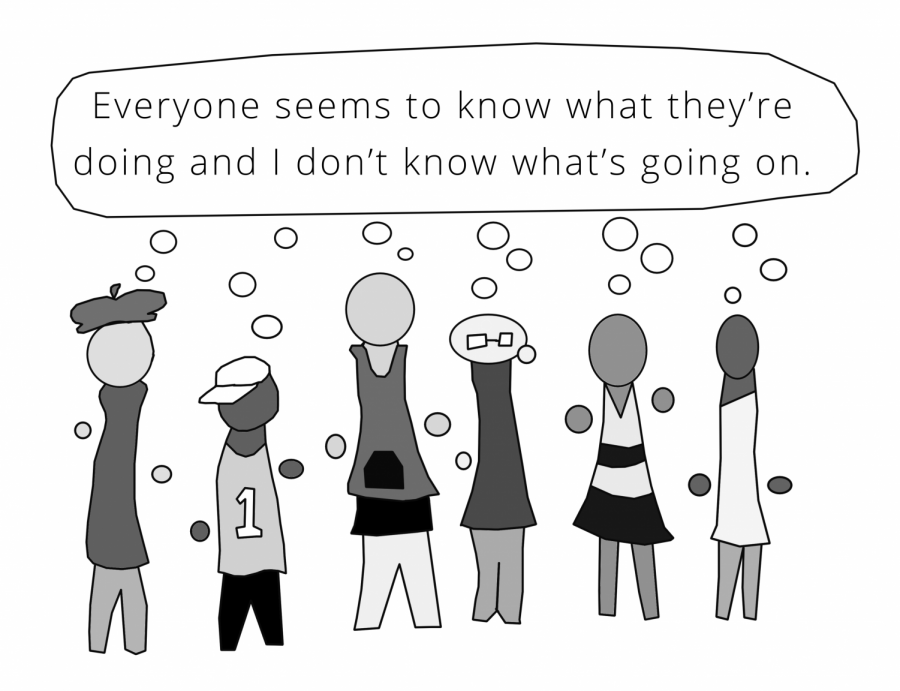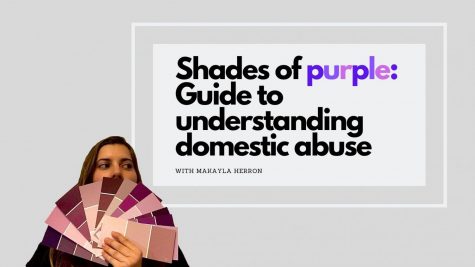Impostor syndrome explained
Accomplishing so much, yet she doubts every move. Unease about unproductivity and when she does create her artwork, she never feels it’s good enough. Senior Olivia Karr experiences these feelings on a regular basis, but she’s not alone in her experience. The phenomenon is called impostor syndrome and many high school students experience feelings of fraud on a regular basis.
Originally called impostor phenomenon, impostor syndrome was coined by American psychologists Pauline Clance and Suzanne Imes, who published an article titled “The Imposter Phenomenon in High Achieving Women: Dynamics and Therapeutic Intervention” in 1978, studying 150 women who achieved academic and professional accomplishments while experiencing impostor syndrome.
The women believed they were unintelligent and had fooled anyone who thought otherwise. They feared being exposed as ‘frauds’ or ‘impostors.’ This fear of failure comes from anxiety and dissatisfaction with life. Around 70% of people will experience its effects at least once in their lives.
From being the youngest in the family to not earning the grades she desires, Karr has many sources of unease and impostor feelings.
“I feel like a fraud and that the only reason I get approval from my parents is that I am the youngest,” Karr said. “I feel like I don’t deserve anything unless I actually work for it, and no matter how much work I do, my mind still convinces me that someone just handed me everything.”
Author and expert in impostor syndrome Valerie Young calls herself a “recovering impostor.” After studying the phenomenon throughout graduate school, she was able to understand and give lectures about the topic to colleges around the country. Young says that any age group can experience impostor feelings, so professionals and students alike can feel like they’re a ‘fraud.’
“I actually haven’t heard of [impostor syndrome],” social studies department chair and AP psychology teacher Giselle Devillier said. “The fact that it’s got a name is surprising to me, but the fact that students feel that way did not. I see so many of my students push themselves so hard to achieve that I could see where they might sometimes have those feelings of inadequacy.“
Karr also feels the effects of the syndrome in regards to her artwork. Two exhibitions featured her artwork during her freshman and sophomore years. However, she still feels like she does not deserve the award.
“Even though I was told I earned my way there, I felt like it was just handed to me because I [thought I was my] teacher’s favorite,” Karr said. “[However], that wasn’t really the case because it wasn’t her that selected me for it. The only thing [my teacher] was involved in was pushing me toward entering.”
How to combat impostor syndrome
It may seem overwhelming when experiencing impostor syndrome, but those feelings are not permanent. Impostor syndrome isn’t just a single feeling, it can come in a variety of types. From believing it’s just luck to fearing that one may be a fraud, there are ways to lessen the impact of impostor syndrome.
The feeling of being an impostor is completely normal. It infects everyone from high schoolers to award-winning actresses like Tina Fey and Denzel Washington. These feelings are rarely discussed since each person feels like they’re keeping a secret but when someone speaks up about feeling like a fraud, it grants everyone feeling the same way a sigh of relief.
Remember that it is ok to not know everything. After a transition in life such as graduation or a new job, a steep learning curve may stand in the way. However, as long as the individual is ready to learn and experience new things, the learning curve can be climbed over.
To combat uneasy feelings, it’s important to think about the concept of “self-efficacy,” the belief in the individual’s ability to handle challenges with various situations. Those with low self-efficacy exhibit similar traits to those who experience impostor feelings, such as believing difficult tasks and situations are beyond their abilities and focusing on personal failings and negative outcomes.
In order to strengthen this psychological skill, it is important to be able to celebrate successes, seek positive affirmation and pay attention to a student’s individual state. Impostor syndrome may come at unexpected moments, but working on these skills can help lessen the feelings of being an impostor.
“[it’s important to see] the positives when they come and understanding that you’re not always going the best,” Devillier said. “You’re not always going to win, and that’s ok. I think that’s one of the things a lot of our students see so much success that when they don’t, that could be hard.”











